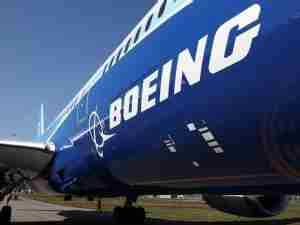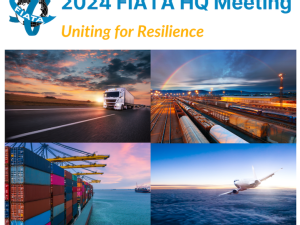In its comments to TSA regarding its 'Interim Final Rule of Air Cargo Screening (IFR)', The International Air Cargo Association says it is concerned that much of the equipment currently certified for use for screening is inadequate and ill-suited for processing palletized air cargo. Existing technologies, the Association says, are mostly only appropriate for the passenger screening environment.
Air cargo screening requirements detailed in the IFR rely on existing technologies, notably TSA-approved methods of screening that include x-ray, explosives trace detection, explosives detection systems, explosives detection canine teams, and physical inspection along with verification of the description of the cargo on the shipping manifest. The rule adds: 'TSA may approve additional methods to ensure that the cargo does not pose a threat to transportation security and to assist in meeting the requirements of the 9/11 Act. TSA will continue to consider different technologies or methods for screening cargo transported on passenger or cargo flights. TSA would approve these additional methods and technologies based on their applicability and effectiveness in screening specific commodities.'
Ulrich Ogiermann, TIACA Chairman, said: 'New technologies geared towards the air cargo environment and capable of screening at the consolidated level are urgently needed. The availability of such technologies could have a significant impact on how the 100% screening threshold is met. We therefore urge TSA to ensure transparency in its review procedures , expedite its evaluation of new technologies and seek to deploy new technologies ahead of the August 2010 deadline.'
TIACA has broadly welcomed TSA's vision for implementing the air cargo screening requirements of the Implementing the Recommendations of the 9/11 Commission Act of 2007 and, in particular, for clearly defining the scope of the rule with respect to foreign-originating flights: 'This rule applies only to cargo loaded in the United States. It does not apply to either US aircraft operators or foreign air carriers when they load cargo outside the US and transport it into the US, nor to US or foreign all-cargo operations.' US and foreign carriers that load US-bound cargo in other countries must carry out security measures set out in their TSA-approved or accepted security programs.
The Association also commended TSA for using the rule to harmonize, 'to the extent practicable, all requirements for air cargo screening and chain of custody', as the lack of harmonization has, in the past, created confusion and occasional dislocation in the air cargo supply chain.
Whilst accepting the general rationale behind TSA's requirement that personnel with unescorted access to air cargo must obtain Security Threat Assessments (STAs) as a means of securing the supply chain, TIACA questioned the decision to impose a five-year expiration date on STAs, requiring a reapplication and payment of another fee. TIACA said a more reasonable solution is to design the STA database in an organic manner, to retain information on all STA applicants and recipients, and to periodically cross-check that information with any new information/red flags generated from the various terrorist and law enforcement databases used by TSA to vet individuals.
TIACA also noted that its members and other companies may have overpaid for STAs in the past based on the proposed cost stated in the IFR of approximately $13-$21. The Association called for any overpayments to be refunded to the companies concerned or credited to future STA applications.
TIACA said it strongly supports TSA's decision to implement the Certified Cargo Screening Program (CCSP) as a critical component for meeting the 100% screening mandate, and encourages all parties in the air cargo supply chain to evaluate whether to participat











